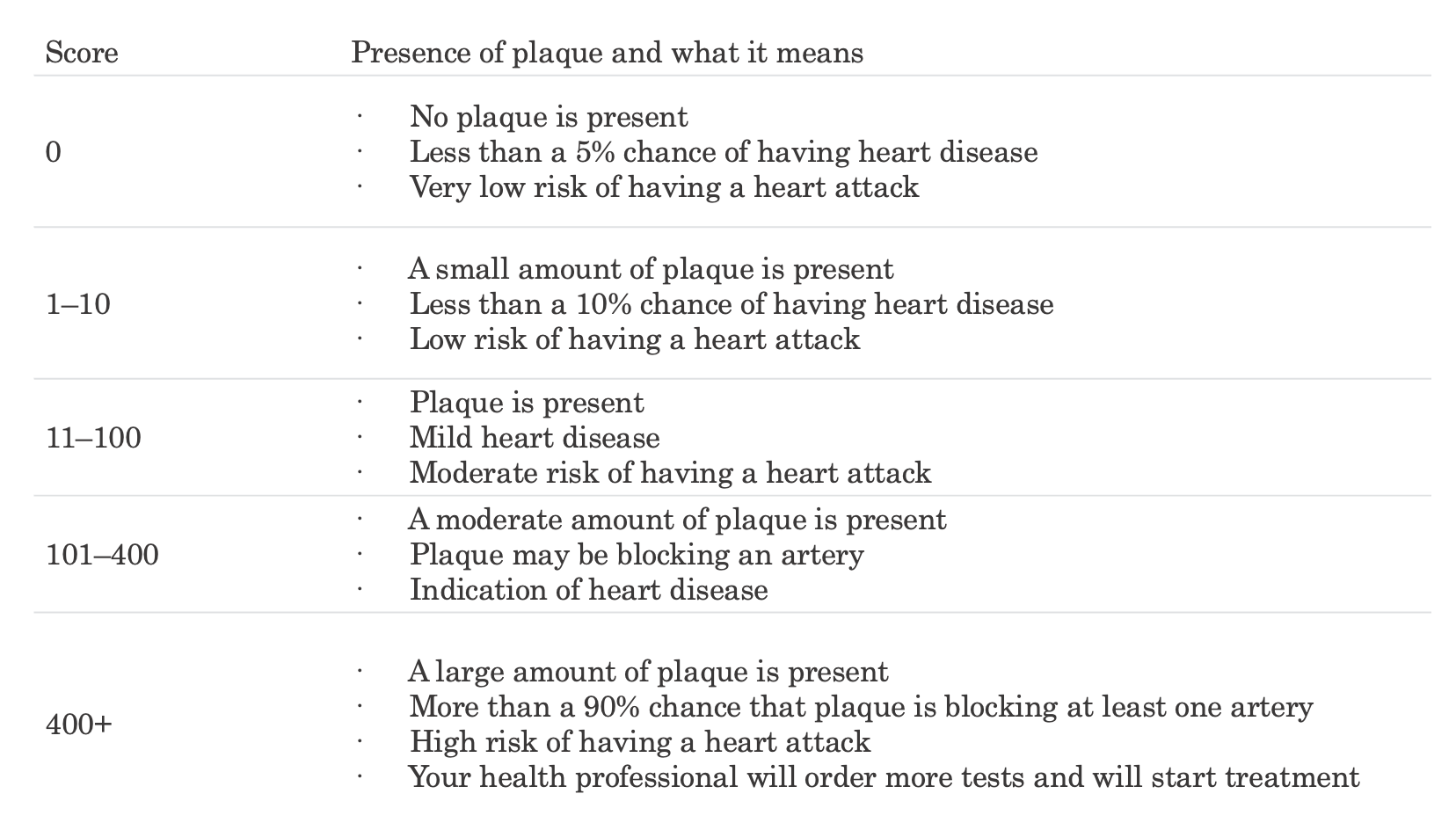Calcium Score Test
What is a coronary calcium score test?
This non-invasive test uses a CT scan to measure the amount of calcified plaque in your coronary arteries. The test measures your “calcium score, which helps your doctor calculate your risk of developing coronary artery disease (CAD)-related events such as a heart attack or a stroke.
What does a calcium score test show that other tests do not?
The calcium score test shows the amount of coronary artery calcium that resides in the coronary artery plaque, which cannot be directly imaged non-invasively. In addition, the vessels of the heart are five times more likely than those of other organs to make plaque. So, if you want to get a good idea of whether or not you are a “plaque builder,” then a CT scan of the heart might predict other types of non-coronary diseases too.
How is plaque detected?
Arterial plaque is hard to measure non-invasively. Plaque takes up calcium, which CAN be detected and counted in a heart scan. The calcium literally sparkles on a CT scan, and the specks of light can be counted. The amount of coronary artery calcium is a measure of coronary artery plaque. Coronary artery plaques can sit and grow slowly over time to produce an artery obstruction. This may lead to chest pressure or discomfort, which occurs first with exertion. Plaques may also rupture suddenly, causing a blood clot to form, which may totally obstruct a coronary artery — the cause of a heart attack.
What is the importance of the calcium score?
The greater the coronary calcium score, the larger the amount of plaque in the artery wall and the greater the risk of a heart attack. The calcium score is thus a good predictor of a heart attack.
Who will benefit from a calcium score?
People with a moderate risk of heart disease can benefit from a heart scan. We define moderate risk as an atherosclerotic cardiovascular disease (ASCVD) risk score of 5-7.5%. However, you may be considered to be at moderate risk when your ASCVD score is classified as” low risk,” AND you also have a family history of heart attacks at an early age.
What does the score mean?
So, the first question is a yes or no question: Do you have plaque? If your calcium score is more than 0, then YES, you make plaque.
The next question is, How much plaque do you have compared to others of your age?
We use the following scoring system:

The American Journal of Cardiology, Vol. 87, June 15, 2001
Are there any risks to this procedure?
The CT scanner emits about the same radiation as an x-ray machine for 10 x-rays. For this reason, a doctor’s written order is required.
What should patients expect about the scan?
Dye is not required for the heart scan.
During the heart scan, you will lie on your back on a table that slowly moves your whole body, except for your head, into the CT scanner (a hollow tube). The technician stands behind a glass wall and directs you while he or she takes the pictures. Usually, the procedure takes 10–15 minutes. After the scan, you should be able to drive yourself home and continue your daily activities.
At the touch of a button, the machine produces a printout of your results with the score calculated for your doctor.
Are there any alternatives to this procedure?
A stress test, risk factor assessment, or cholesterol testing could be alternatives to this procedure. Your doctor can advise you about which tests will most likely be useful.
